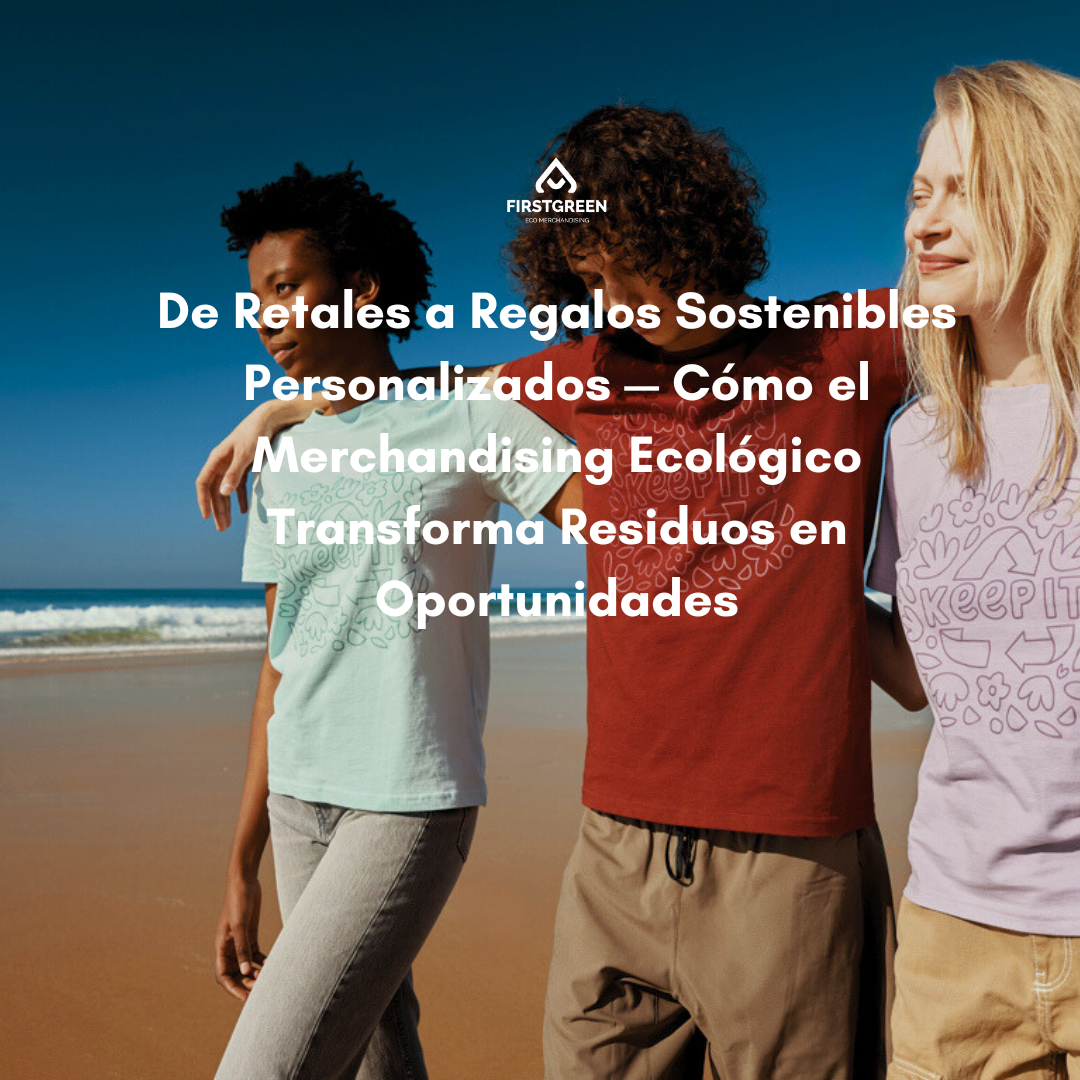Today, the philosophy of reusing and recycling is resurfacing strongly in a different, but equally urgent, context: environmental sustainability. Companies like Firstgreen , specializing in eco-friendly merchandising, are adopting this vision as part of their commitment to responsible business promotion, aligned with the sustainability strategies of the retail sector.
"The best inventions are usually born out of necessity and ingenuity."
Trends that emerged centuries ago to meet basic needs—like keeping warm with blankets, down jackets, or duvets—are now being reinvented as sustainable options within the zero-waste movement. The goal is clear: to reduce textile waste, which takes centuries to decompose, and transform it into products with a positive environmental impact.
For generations, patchwork quilts—stitched from scraps of used fabric—symbolized that spirit of resilience. African American and Indigenous women in the United States, with limited resources, created warmth and dignity with their own hands from whatever scraps they could find.
Today, this age-old practice has been transformed thanks to upcycling: contemporary designers turn recycled materials into unique pieces, merging creativity, sustainability, and tradition. This same logic inspires eco-friendly merchandising: creating promotional products from textile waste or recycled fibers, demonstrating that a need can be the source of great ideas, without harming the planet.
Eco-friendly Merchandising: The ecological need turned into a business virtue
In this article, we focus on materials that, like patchwork, turn necessity into a virtue. Yesterday it was the patchwork coat; today it's the urgent need to reduce greenhouse gas emissions that drives us to rethink how and with what we manufacture. In this context, personalized sustainable merchandising emerges as an ingenious and responsible solution: promotional products that utilize available materials—scraps, recycled PET bottles, reclaimed cotton—giving them a new, longer-lasting life with a clear purpose.
These solutions not only meet environmental objectives but also strengthen the corporate image through eco-branding strategies. It's about communicating sustainable values through even the smallest object: a bag, a notebook, a backpack. Because every detail counts when building a brand committed to the planet.
1. The recycled t-shirt: a symbol of change in fashion and retail
The fashion industry is responsible for approximately 10% of global carbon emissions and generates millions of tons of textile waste each year. However, brands and suppliers are shifting towards a new production logic: less waste, more responsibility, and greater traceability . In the retail sector, integrating sustainability strategies is not only a requirement of the current market, but also a opportunity to innovate and build loyalty.
Just as quilts of yesteryear told stories through their fabrics, today's sustainable fashion brands tell others, using recycled materials and responsible processes. A great example is the Ecoalf brand, which transforms marine and textile waste into designer garments.
One of the most representative pieces of this change are the t-shirts Recycled eco-friendly products, which symbolize how a simple product can become a vehicle for environmental awareness.
Children's Eco-Friendly T-Shirt Made from Organic and Recycled Cotton 160 g/m² with Disruptive Physical Tracer AWARE™, OEKO-TEX® Certified, and in Collaboration with the NGO Iqoniq Koli, with GREEN_Label A Carbon Footprint Offset Rating
2.- T-shirt made of recycled cotton and RPET polyester
Basic, sustainable and perfect for high-impact campaigns.
This promotional t-shirt combines recycled cotton with RPET polyester, resulting in a comfortable, durable garment that is much more environmentally responsible than a traditional t-shirt. It is ideal for eco-branding initiatives at events, team building, or corporate merchandising.
Unisex Oversized Basic T-Shirt, Sustainable, Made from Recycled Cotton and Recycled Polyester, Customizable, Made in Spain - 180gr/m2 Jersey Knit and A Sustainability Rating

View recycled t-shirt at CO2gifts
Sustainable advantages:
-
Mixed composition: 60% recycled cotton, 40% recycled polyester (RPET)
-
Significant reduction in emissions and water use
-
Customizable with sustainable inks
-
Available certifications (GRS / OEKO-TEX)
3. Integration of CO2 Gifts into the retail strategy
For brands in the fashion and retail sector, using recycled textiles not only reduces direct environmental impact but also creates brand value in terms of transparency, commitment, and differentiation. These t-shirts are CO2Gifts. For companies, they allow you to send clear and consistent messages with the values of a modern company, through an everyday object with high visibility potential.
In the pursuit of ecological differentiation, companies in the textile industry are constantly evolving to utilize novel and innovative sustainable materials that perfectly adapt to the new challenges presented by climate change. Eco-friendly merchandising companies, such as Firstgreen, are the sustainable advertising complement that the retail industry's sustainability strategies require, creating eco-friendly workwear for companies by reusing plastic waste, such as rPET, or using recycled fibers from industrial and post-consumer cotton in custom recycled cotton sports caps.
Eco-friendly Impact Cap made of Recycled Cotton 280 gr/ m2 for Customization with AWARE™ 5-Panel Tracer and Contribution to NGOs, and positive footprint calculation study GREEN_Label A.
Sewing sustainable ideas together to build brands with purpose
Just as patchwork quilts were born out of necessity and became symbols of ingenuity, eco-friendly merchandising today represents a modern way of weaving smart solutions with a positive impact. Every recycled T-shirt, every RPET bag, or eco-friendly backpack not only conveys a company's logo but also its commitment to a fairer and cleaner future.
In a context where consumers increasingly value consistency between words and actions, investing in sustainable promotional products is a strategic decision . Firstgreen understands this shift and offers a range of advertising solutions aligned with the circular economy, eco-design, and carbon footprint reduction.
If your brand wants to stand out, build customer loyalty, and make a tangible contribution to the planet, choose products that speak the language of commitment . Because climate change won't wait, and neither will sustainable retail.
What's next?
Discover how Firstgreen and CO2gifts can help you turn your promotional campaigns into responsible actions:
🔗 Explore Firstgreen's sustainable catalog
🔗 Discover CO2gifts' certified products





